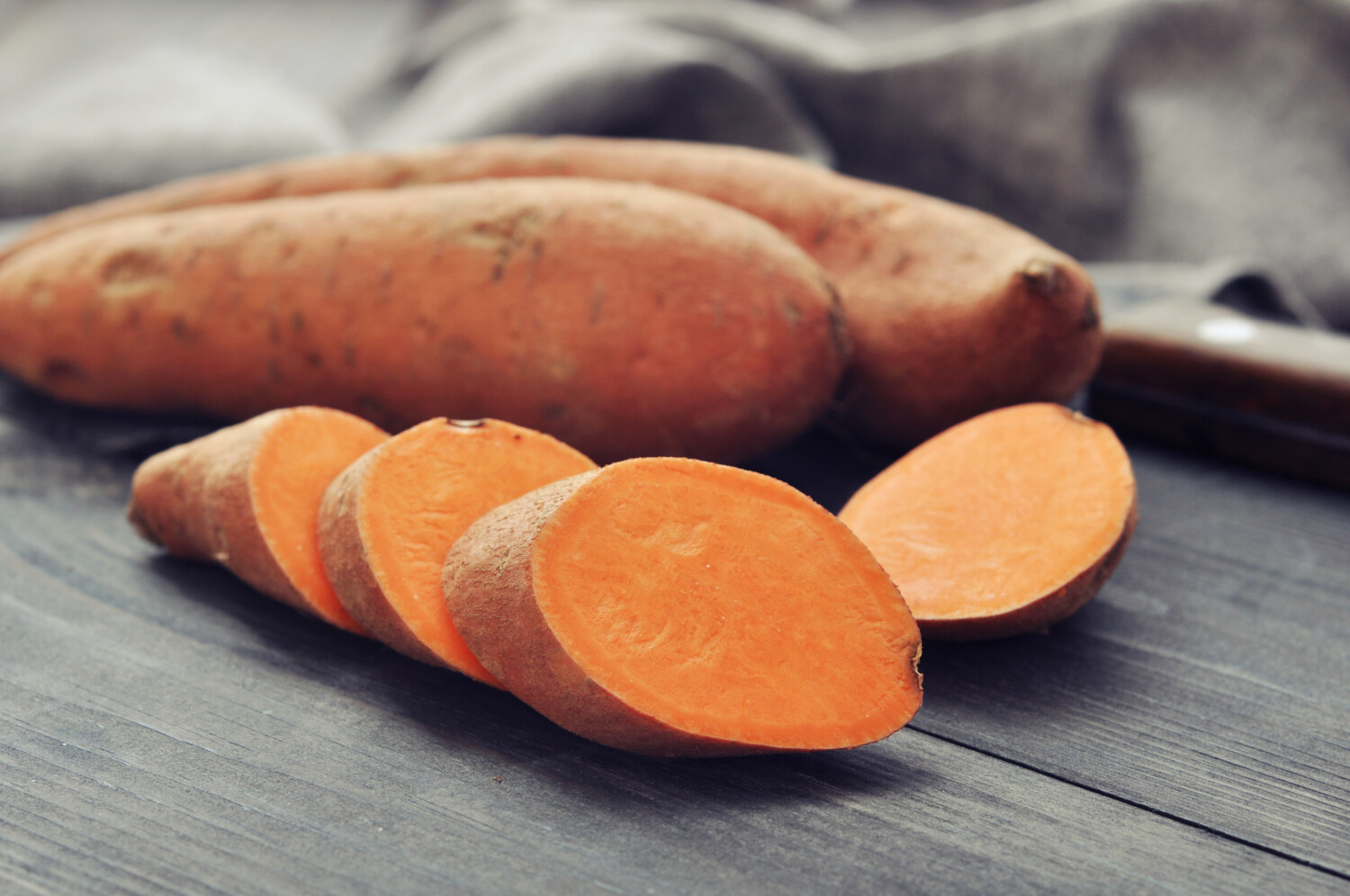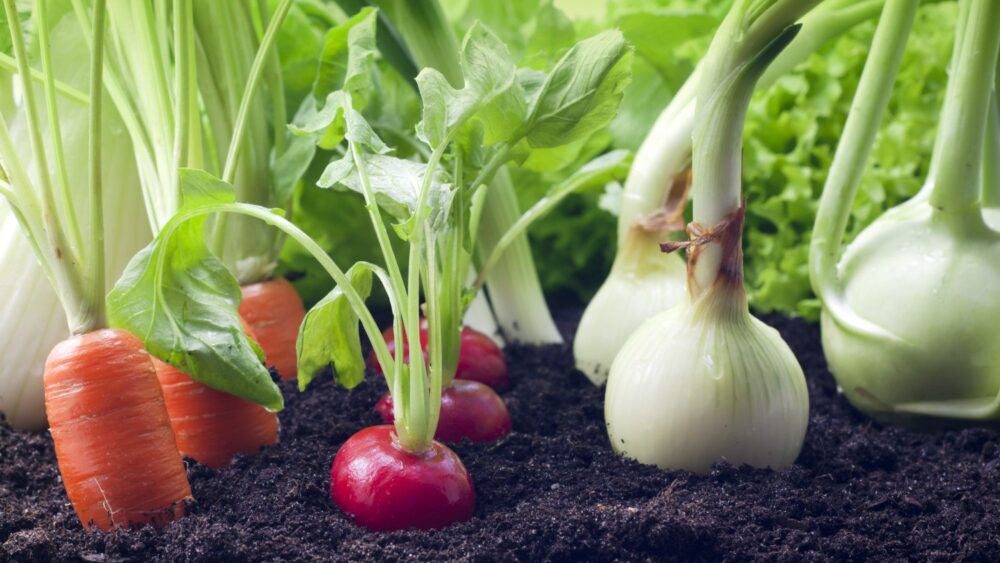Sweet potatoes are so nutritious you’ll want to add them to every meal

Sweet potatoes are incredibly versatile tubers packed with a wealth of nutritional benefits. You can find sweet potatoes hiding out in pies, sliced into fries next to a delicious burger or baked whole with a savory slab of butter melting on top.
And as awareness grows about the nutritional benefits of sweet potatoes, Americans seem to be piling them onto their plates more than ever before. The Agricultural Marketing Resource Center explains that sweet potato consumption rose 42% from 2000 to 2016, likely due to marketing campaigns that highlighted their various benefits.
So what is it precisely about sweet potatoes that makes them such a popular choice among Americans? For starters, they are low in calories (180 per potato) yet high in vitamins including niacin, vitamin C, B6, and A. They also include necessary minerals such as potassium, copper and manganese and are rich in fiber and antioxidants to boot.
If you want to learn more about the power of this nearly-perfect superfood — as well as how you can incorporate it into your diet — keep reading.
MORE: Sweet potato toast is the newest breakfast craze and we love it
Rich in Vitamin A
Sweet potatoes are an abundant source of vitamin A, a key vitamin responsible for the proper functioning of our immune system, our reproductive system, our vision and organs like the heart and kidneys.
The vitamin A that comes from sweet potatoes is sourced through provitamin A carotenoids, which are present in the form of beta carotene, a reddish-orange colored pigment that gives fruits and vegetables their color. Provitamin A carotenoids are found in fruits and vegetables, and the body has to actively work to make the vitamin A available.
The other type of vitamin A is called preformed vitamin A, and is found in fish, meat, dairy and eggs, along with dietary supplements you can buy. It is already available to the body as vitamin A.
MORE: Here’s the difference between sweet potatoes and yams
Vitamin A deficiency is not common in the U.S., but can occur nonetheless. Symptoms of deficiency include night blindness, dry skin and hair, patches of white on your eyes, and a condition called xerophthalmia, which is a severe drying of the eye that can cause blindness of untreated.
Thankfully, one single sweet potato contains a whopping 400% of your daily value of vitamin A, meaning there’s no need to worry about deficiency if you incorporate them into your diet.
The Power of Antioxidants
The same carotenoids that support your immune system and vision also serve as antioxidants, which are well known for their anti-cancer effects.
The antioxidant effect produced by the carotenoids in orange sweet potatoes helps protect the body from free radicals. Too many free radicals in the body can lead to oxidative stress, which can then lead to a number of diseases — including cancer.
While free radicals do serve a purpose in the body, it’s important to keep them in check by eating foods that are high in antioxidants. In addition to cancer, conditions that can be caused by oxidative stress include diabetes, high blood pressure and other inflammatory diseases.
If you feel like branching out and trying another type of sweet potato, purple sweet potatoes also contain antioxidants in the form of a natural compound called anthocyanin, which is specifically known to help reduce the risk of colon cancer.
Packed With Fiber
Making sure we get enough fiber in our diets is crucial. In a nutshell, fiber assists in regulating the way our body processes sugar, helping to both maintain proper blood sugar and regulate our hunger. Fiber is available in both soluble and insoluble forms, and lucky for us, sweet potatoes have both.
In total, one cup of cooked sweet potato has roughly 6 grams of fiber, representing 26% of the daily recommended average. The skin contains a significant portion of its fiber, so avoid peeling your sweet potatoes if you want to up your fiber intake.
Soluble fiber in particular is known to help lower cholesterol, and insoluble fiber is known to promote healthy bowel movements. Foods that are high in fiber are also known to help keep you fuller for longer, which is excellent news for people who want to reduce their caloric intake.
Fiber is also known to lower the risk of some serious conditions, including diabetes and heart disease, and can be good for your gut microbiome as well as your brain. Both children and adults need 25-35 grams per day.
Delicious Sweet Potato Recipes
Sweet potatoes are very easy to incorporate into your diet and can satisfy those who have tastes for both savory and sweet foods. There are so many ways to prepare it, you’re sure to find a recipe that works for you.
If you enjoy a savory breakfast, this sweet potato hash recipe may be the perfect morning nosh. The recipe from the blog Build Your Bite calls for a mix of cubed sweet potatoes, onion, garlic, spices and olive oil. The dish is simple in its preparation, and requires you to peel and cube the sweet potatoes, place them in a casserole dish, and toss them with the spices, onion, garlic and olive oil before placing them in the oven to bake. The result is a savory breakfast dish that’s packed with nutrients and flavor.
Sweet potatoes also shine in dessert form, as evidenced by this sweet potato marshmallow bars recipe.
You could also make this sweet potato bread, or try this delicious-looking sweet bourbon sweet potatoes side dish that seems like it would go perfectly with a meaty main. Or, stuff and twice-bake them to create a Mexican dish. For a quick, nutrient-rich meal, you can even microwave your sweet potato and simply add your favorite toppings.
These tubers aren’t just healthy — with the right preparation, they’re also tasty. Enjoy!








